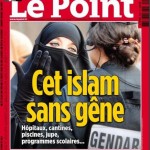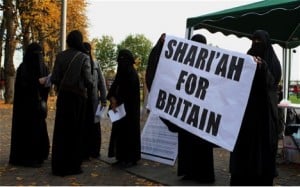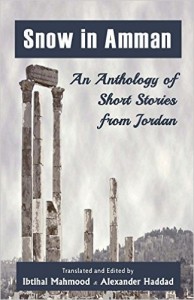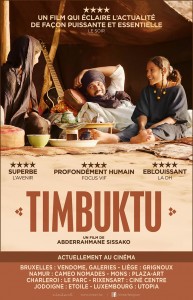Last week, PBS aired the premiere of Solar Mamas, an inspiring documentary of one woman’s journey to transform her life after being offered the opportunity to become a solar-energy engineer.
http://www.youtube.com/watch?v=oGMgHZ1WzxA
Rafea Ehnad is a 32-year-old mother, and a second wife to an unemployed husband; she lives in one of Jordan’s poorest desert villages. With only five years of formal education, she used to spend her days living off a meagre government assistance fund in a drafty tent, struggling to care for her four daughters — hoping to provide a better life for them. Now that she’s graduated from India’s Barefoot College as Jordan’s first female solar engineer, she spends her days trying to convince her community that an educated woman is worth the investment.
“A girl is not supposed to continue school past age 1o because it is shameful. Is it not shameful that the youth of these girls is wasted without work? Without an education or purpose in life?”
With help from the Ministry of the Environment, Rafea was one of two women from Jordan chosen to join others from Guatemala, Kenya, Burkina Faso, and Colombia in a special six-month program to receive training on how to wire and install solar panels. After pressure from her manipulative husband, Rafea is forced to quit and the documentary focuses on her struggle to get back to the college and start a branch of the Jordanian Association for Sustained Development in her community — with the future hopes of training other women as solar-energy engineers.
This film not only highlights the importance of using sustainable energy to improve conditions for the rural poor, but also argues the importance of providing education to women, without sounding patronizing. More than once it’s mentioned that the reason women are accepted into this program is because they are the ones invested to stay and improve the conditions of their communities. An educated man will leave to earn money elsewhere.
As I mentioned in a previous review, what I absolutely love about this film is the absence of a narrative commentary. The women, and Rafea in particular, are given an unmediated platform to speak for themselves. Without even the addition of a soundtrack, the story unfolds naturally — and is, refreshingly, not a story about a man, an institution or a Western saviour swooping down on disenfranchised women ready to rescue them from their oppression. This is a story about women having the opportunity to do it for themselves and succeeding.
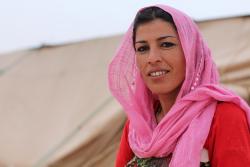
While the original intention of the film was to follow the lives of three women who attended the college, co-director Mona Eldaief explainsthat it didn’t take long for Rafea’s story to stand out. Rafea is an amazing woman, and her drive to better herself and her community is simply inspiring. While I would have loved to see more backstory on the other women attending the college — especially after seeing the close camaraderie they all develop — I can completely understand the director’s decision to choose Rafea as their focal point. She is animated, strong, vocal, and a fighter — and is by no means a stereotypical, subservient Muslim woman abiding by patriarchal norms. In fact, she’s downright bad-ass.
Rafea’s personal strength shines through after her controlling husband threatens divorce and the loss of her four daughters in order to emotionally manipulate her into coming home early from the program. There’s a fantastic scene where she’s sitting with some female members of her family, trying to gain their support by arguing the importance of educating women. It’s a frustrating discussion, as every point she makes is met with apathy toward change, and arguments that it’s “best for women not to work or educate themselves,” and calls of “haraam” when she threatens to take out a loan. In response, Rafea says:
“I can’t do anything if I don’t have any skills. I want to explore the world. I want to learn. I want to see how people in other countries think and work. I want to think and work with them… I want to succeed and change the situation in the village… If everything is [haraam] then we can’t do anything.”
Rafea’s insistence finally pays off and the women help browbeat Rafea’s husband into allowing her to return to the college.
But it’s not as simple as a group of women (and one male village elder!) emasculating her husband. In the end, Rafea needs official support from the ministry and further passive aggressive, emotional manipulation on her part before she is “allowed” by her husband to return. Despite the fact that he “kills her spirit,” she deprives him of having any control over her, by heartbreakingly pretending she doesn’t care about anything — including the hope of a better life or his threats to take her daughters.
It’s seriously a fantastic example of the fluidity and dynamics of power and gender.
One interesting thing I couldn’t help notice throughout the film, is that it seemed the more formal education Rafea received, the more loose her hijab became. It started with her bangs, came off completely at the school, and after her return home, there were at least two scenes of family members either fixing her hijab or telling her to cover her hair.
At first I was a little disappointed. It’s a seductive and shocking trope to display the transformation of the “Muslim woman” from “oppression” to “liberation” by the degree to which her hijab falls off. And despite the lack of narration, I’m not so naive as to ignore the fact that the film has been framed to relate a specific message.
I suppose the argument could be made that it’s representative of Rafea struggling against patriarchal norms, as her struggles are always reduced to “culture.” The need for a mahrem is explained away as being a part of “bedouin culture;” women aren’t educated because it’s “what we’ve always done,” and Rafea’s contact at the ministry apologizes for making it sound like a man has made all the decisions when he intervenes with her husband — saying that it’s just a “part of our culture” for the man to feel like he’s in control.
Despite this observation, it’s never “culture” (Islamic, Arab, bedouin, or otherwise) that is being changed. Instead, the focus is placed on “changing the role of women” in Rafea’s community through her direct action. And after watching the documentary a second time, I’m convinced that Rafea’s yo-yo hijab is simply an aspect of her own personality — she does what she wants, when she wants — and is not reflective of any sort of negative stereotype associated with the hijab.
It was so refreshing to watch a positive film about women’s empowerment without having to roll my eyes.
As things stand today, Rafea is raising her fifth daughter and has a partnership with village elders to train other women as solar engineers. She has already brought solar energy to the community and gathered the resources to build herself a house. There are still obstacles, but for now at least, Rafea’s future looks a little brighter.


